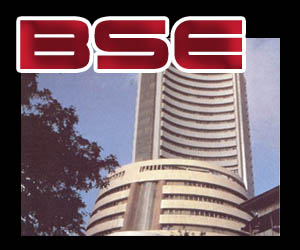World Stock Market Review By Nirmal Bang
 Asian stocks rose, led by automakers and consumer companies, after the U.S. jobless rate dropped and Japanese machinery orders increased, boosting confidence that the world’s two largest economies are emerging from recessions.
Asian stocks rose, led by automakers and consumer companies, after the U.S. jobless rate dropped and Japanese machinery orders increased, boosting confidence that the world’s two largest economies are emerging from recessions.
U.S. stocks rose for a fourth week, pushing the Standard & Poor’s 500 Index above 1,000 for the first time since November, as better?thanestimated employment, manufacturing and home sales data boosted confidence that the worst slump since the Great Depression is ending. With the economy strengthening but still fragile, Federal Reserve policymakers are expected to hold a key lending rate at a record low this week and will weigh whether to extend some programs that were created to ease the financial crisis. Fed Chairman Ben Bernanke and his colleagues also are likely to signal that while the recession is winding down, the pain isn't over. Though the unemployment rate dipped to 9.4 percent in July — its first drop in 15 months — economists predict it will start climbing again. Many, including people in the Obama administration and at the Fed, say it could still top 10 percent this year.
China will maintain its current macroeconomic policy stance aimed at bolstering domestic spending as the nation continues to experience the fallout from the global recession, premier Wen Jiabao said. The effect of some of China’s stimulus policies will weaken over time, and the economy is still under pressure from declining demand for exports, Wen said in a statement on the central government’s Web site on Sunday. China’s 4 trillion yuan ($586 billion) stimulus plan, which is funding the construction of roads, railways and airports, coupled with record lending helped the economy recover in the second quarter from the slowest growth rate in almost a decade. Government spending and the credit boom have countered a collapse in trade and aided global businesses from Semiconductor Manufacturing International to General Motors. “The reason that we are sticking to the proactive fiscal policy and moderately loose monetary policy is because we are facing many difficulties and challenges,” Wen said.
Hang Seng Bank Ltd., the largest Hong Kong?based lender by market value, said it is considering raising its stake in China’s Industrial Bank Co. and may also make acquisitions to expand in the world’s thirdlargest economy. The bank, which has invested 7.4 billion yuan ($1.1 billion) in China, would like to increase its 12.8 percent stake in Fuzhou?based Industrial Bank, Chief Executive Officer Margaret Leung said.